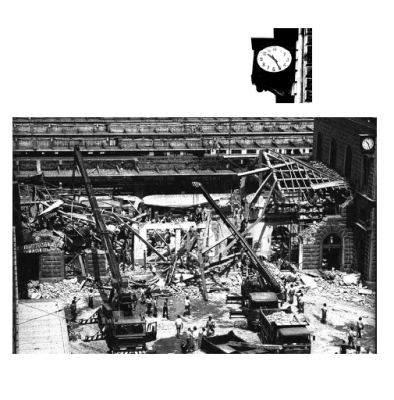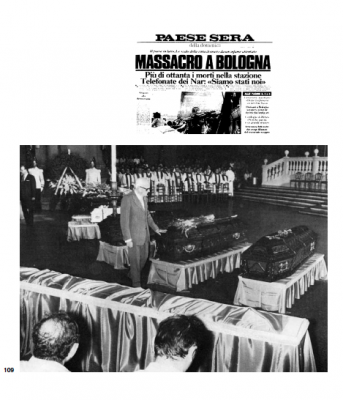Ich müsste eigentlich loben. Acht Spieltage sind vorüber, ein Viertel der Saison immerhin. Die Bayern haben sich an der Tabellenspitze eingerichtet. Dortmund, der große Konkurrent, ist bereits tief gefallen, 13 Punkte entfernt – beinahe auf einem Abstiegsplatz. Und doch stimmt irgendetwas nicht. Mit den Bayern. Es ist wie in so einem Film über Kunstdiebstahl. Man geht ins Museum, alles ist scheinbar perfekt, aber irgendetwas stimmt nicht. Man weiß es nicht sofort, aber so ein Gefühl begleitet einen. In guten Filmen ist der Twist am Ende grandios. Irgendein Gemälde war eine Fälschung. Aber was ist die Fälschung gerade beim FC Bayern? Alles scheint so gut zu sein, vielleicht zu gut?
Möglicherweise. Denn weder hat das Offensivspiel eine Zuspitzung wie in der Triple-Saison 2013, als Jupp Heynckes die zwei besten und versiertesten Außenverteidiger der Welt mit den zwei dynamischsten und trickreichsten Außenstürmern der Welt kombinierte. Noch erreicht die Defensive jene Undurchdringlichkeit, die immer schon das Alpha eines Titels war. Und was das Mittelfeld betrifft, das im postmodernen Systemfußball zum Hochaltar der Taktiker wurde, so darf doch niemand glauben, dass in Xabi Alonso und Philipp Lahm die Macht gefunden wurde, die Real, Barca, Chelsea oder Paris aufhält in der K.O.-Runde der Champions League.
Was also will Pep Guradiola? Will er das, was alle sagen? Vier Systeme in 90 Minuten spielen lassen? Jeder Spieler muss jede Position verstehen, einnehmen können, beherrschen? Philipp Lahm hat er nun in die offensive Flanke gestellt, rechtsseitig. Da würde er ja, um beim Beispiel Chelsea zu bleiben, im Dreieck John Terry, Ces Fabregas und Cesar Azpilicueta tätig werden müssen. Wie soll Dante den Belgier Eden Hazard aufhalten, wenn Dante kaum einen Sprint gegen Stürmer aus der Bundesliga gewinnt? Unter Heynckes stand der FC Bayern tiefer, Dante musste nicht so weit sprinten und wurde von Martinez und Schweinsteiger beschützt.
Damals, vor 16 Monaten, galt der Heynckes-Fußball als vollendete Schönspielerei – klar, strukturiert, kraftvoll, filigran, cool, effektiv. Was ist Guardiola-Fußball? Die Zauberflöte? Was wäre Guardiola-Fußball eigentlich ohne die Grundlagenarbeit von Louis van Gaal? Denn eins fällt auf: Wenn es eng wird für die Bayern, macht die individuelle Qualität der einzelnen Spieler den Unterschied aus, und noch immer stehen sechs, sieben auf dem Feld, die in Wembley Champions-League Champions wurden.
Und was will einem eigentlich der Transfer des spanischen U-21-Nationalspielers Bernat sagen? So einen Spieler hat der FC Bayern schon einmal verpflichtet, 2009. Sein Name: Danijel Pranjic. Man könnte meinen, Bernat sei für Guardiola das, was für van Gaal Pranjic war. Am Ende ist van Gaal daran gescheitert, nicht an Pranjic persönlich, der ein mittelmäßiger Spieler war und blieb. Van Gaal, der so viel erfand, etwa den linken Außenverteidiger Alaba oder den Stürmer Müller, er scheiterte an seiner Selbstsucht. Wider besseren Wissens sollte Pranjic quasi Alonso sein. Das war er nicht. Und was ist dann Bernat?
Man weiß es nicht. Man weiß, dass Bayern München nach acht Bundesligaspieltagen weit vor allen anderen liegt, noch kein Spiel verloren hat, auch nicht in der Champions League, auch nicht im DFB-Pokal. Man weiß, dass Philipp Lahm erstmals in seiner Karriere zwei Tore in einem Bundesligaspiel erzielt hat, gegen Werder Bremen, ein Team, das keine Zweikämpfe gewann und keinen einzigen Torschuss in 90 Minuten zustande brachte. Und man weiß, das Guardiola ein allseits bewunderter Schöpfer taktischer Züge ist. Ach, Bayern ist so gut, man scheitert mit Kritik. Doch irgendetwas, irgendetwas stimmt nicht.
This is what love is. I guess I don´t know how you know so much about it so clearly. 1984. Foreigner releases a song called “I wanna know what love is”. I am age 7 then. By the time I am a teenager I have listened to this song as often as a zillion others. How the hell do we come to know what love is? And that fucked-up-following-line just made me wonder even more: I want you to show me. Where does the other one know it from? You and I, we write on Love here, you and I and a lot of others talk about love, we make decisions on Love and yet I wonder if we all really know what it is. To some it is longing, isn´t it?
I once met a young actress, boy did I love that girl. How do I know? Is it because the memories are so alive, because I was all the way present in her presence? She was young, could be anything between 17 and 21, she was free and wild and asexual in a gorgeous way. She had cut her hair short and bleached it platin blonde. The one night we were almost drunk we took pictures of us with our cameras, selfies with digital cameras, me, that brunette-twenty-something next to that coming-to-life-big-eyed-blonde-shorthaired girl… when we looked at our pictures we knew: She was Andy Warhol. Andy Warhol – with a slavic accent – is what we called her when she felt most ridiculous since then. We saw and we knew. Have I ever really seen love? She has maybe given me some of the most vital hours since my childhood, she was all so curious about life, she needed life to act, she didn´t think of acting as acting, she thought of acting as re-living experiences and thus she needed them. All of them. And then, one night, she came up with that one thing she was missing in her life: She didn’t know what love is. How can you act when you don’t´know what love is, she asked? All those female character are about love… I was amazed at how clearly she knew what she had not felt… I was sure she would know it one day, because the clarity of what wasn´t there felt like a space for what was to come…. And then again: What happens to those who don´t believe in it, don´t ask, don´t know about it… Do you have to believe in it to experience it? This is what love is, you wrote. And I got all lost. I need more doubt in all this.
The things you say resonate with the situation I am in right now. It makes me think about the unfortunate constellation of power, desire, harassment and resentment. I am sitting in a train and while I am writing this, a man stares at me. I don’t like the situation, because there is no way out for me. I don’t want to engage with him at all, don’t want any mutual communication to go on. But if I ignore him, he just feels free to continue to watch me and if look back at him, he might interpret that as if I am teasing or approving. So I feel trapped in his gaze.
In the discussions about rape or sexual harassment men often accuse women of using/abusing their power to tease men. But what this teasing means is defined by men and their desire. They get angry at their object of desire – the women, because they think she has power over them. But in reality they gave a woman the power she never asked for. Men resent women, because they feel exposed to their desire for her and the danger of being rejected. But the rejecting is a power the women never asked for to begin with. Still men accuse women for provoking desire in them, as if its the woman’s responsibility.
I feel that this is at the core of this wicked misinterpretation of who has power. The person who desires or the person who is desired. I was in situations where men became rude because they felt rejected by me, because they projected that I want them to desire me. But that was a “power” I never even wanted to have. On the same time, I realize again and again, most men are not capable to see themselves as a teasing object of desire for women, because they argue that this power relation only goes one way – women teasing men. They blame women to tease them and don’t acknowledge that men have the same enticing power for women as well. But women don’t rape (besides the few cases, statistically close to 0 in opposition to how often men rape). So apparently men feel more entitled not to limit their desire but see it as an invitation whenever they feel teased. Gender hierarchies become clear if we simply reverse gender positions: for instance I wonder if the female gaze could be seen as so dominant that men wouldn’t be allowed to go topless anymore, because it would be seen as a tease for women and therefore indecent. I always want to go topless in the summer. I would love to feel the warm air on my chest. But people might call the police, if I’d do so. Why? Because society sexualizes my breasts. Honestly I find that a scandal, that I have to cover my chest in hot weather because other people sexualize me. The male gaze defines what I can show and what not. Honestly I find that truly crazy, but it is perceived as totally normal. So, will we come to a point when men have to cover up because women sexualize them? I think if you turn around this perspective you truly understand how crooked and limiting our perception of normality is.
I agree with you that the most attractive men are the ones who are not afraid to lose their strength by not performing a strict and clear image of masculinity. Instead machos smell of a deep insecurity, which they try to cover up. But you can of course also look underneath the macho skin and find other things: As a girl, I liked to watch soccer with my father. I liked watching men being so emotional, sensitive and physical. Indeed I didn’t see soccer as a sphere where men are super masculine but a sphere where they show their beauty in their vulnerability.
But mostly, even if men are shown as sexy it still adheres to the typical gender stereotypes: Men are more and more sexualized like women e.g. in commercials, but still the difference is that sexualized women are portrayed as serving, passive, waiting to be taken, while sexualized men are portrayed as strong, demanding and ready to take possession. So just because we all undress for commercials doesn’t change what women and men perform in their presentation of femininity and masculinity. And that’s pretty boring.
Because the very sad thing is, that the dominant view on sex takes away our ability to explore, enjoy and define our sexuality on our own terms. In the end sex and desire should be about play and not about who wins.
In that regard I also have to respond to your view on prostitution: I actually think there is a possibility that prostitution can be a service to assist in a play, if we don’t find a partner or we have a certain wish about a sexual speciality. I would argue that pornography, sex work, desire or gazing is not a problem in itself. But it becomes a problem, because it is organized according to a sexist world. I also find the comparison of sexwork and being a wife or mistress valid. In a patriarchal and capitalist society women have to use their body and their sexuality as a source of income or social status (e.g. marriage) because that is the way men acknowledge the status of a woman. But is there a way to organize sexual services in an non-damaging way?
We consider penetration altogether as an act that makes women vulnerable or easy to degrade. And that’s a fucked-up notion to begin with, created by patriarchy and a culture which uses rape to discipline and scare women to feel vulnerable and powerless. And of course in the world we live in, men use paid sex to feel power over women, to get their superiority out of degrading her thru using her for sex. In that way it makes me just sick when I think about how popular it became as an image representing sexuality for a man to spread his cum all over a woman’s face. That this is portrayed as the absolute climax of male sexual pleasure. Well not for women…, but that unfortunately has an impact especially on young people’s expectation when this is presented as usual sexual behavior. So you are right, we teach women to feel alienated from their bodies and their pleasure, to be ashamed to explore what turns them on and tell their partners. We hardly see men in porn going down on women, especially not until she comes. Visuality and gender inequality strengthen each other in mainstream porn: men’s pleasure is the sole focus, confirmed in an always-visible ejaculation; this hyper visuality also denies women any orgasm, as there is no obvious visual sign to be used for it. Squirting – the female ejaculation could be one, but not all women do that every time they come. Instead we say that it is sooooooooo complicated for women to have orgasms, sooooooo complicated that you have an easy excuse if you don’t even try… and women feel ashamed to ask for it or to even explore which are the best ways for them to come and tell their partners, because it’s being presented as too much work. It’s all about women serving men and not at all about the different ways women and men can find pleasure. It makes me really really sad. In that way, prostitution in a sexist world approves that men have the right to fuck without caring about their “partners” pleasure. So in that regard we still have a long way to go.
But I do think in a non-sexist society, where sex is not a tool to degrade and control women, where our desire wouldn’t be so fueled with images of objectification, there would be a way that prostitution can be organized in a non-damaging way like any other service with workers rights, unions, health assistance, etc. and if they could organize it on their own terms, not dictated by a sexist culture, pimps and the police. Maybe it could be acknowledged as a healing power, but I know that is utopian right now.
So, regarding African male sexworkers, I do agree that European women find it probably easier to objectify a black man, then a white one, because in a racist culture they learned to take for granted they don’t have to consider African men as subjects with their own perspective and experience. They are easier preys, you can deal with them in a more irresponsible way and get away with it.
That makes me wonder: How do Nigerian women look at men? What does it mean culturally, when they direct their gaze at men. Does it signify an invitation, provocation, an aggression, a transgression? As a white female traveller, I was told Nigerian men would see it as an invitation when I directly look at them. But I wonder if that is one of the clichés which reinforce the cautionary tale, teaching women to be aware about dangerous black men and dismiss any communication from the start, to uphold a race division. I like to smile at passers-by, as an expression of friendliness (but also to be honest, as the performance of the leftwing, liberal white middle class women in a black environment, in a city which is pestered by class and race division), I hate the feeling I shouldn’t smile at male passers-by, to not “provoke” them. In Lagos I got involved in some nice and easy chats because of that, never harassment. I would like to know your thoughts about that.
Scenario:
Malta. It’s 12:00, December 28 1977. Karen aged 15 and her little brother are home alone. A letter is delivered to their doorstep (we later find out he was a fingerless carpenter?). The small parcel was delivered whilst doctors in Malta were on strike (they had issues with the Labour Government at the time). The girl opens the parcel thinking it must be a Christmas gift. It works. The letter bomb explodes. She dies. At her funeral they say that this was “the first terrorist act in the country”.
Another letter bomb is delivered to Dr Chetcuti Caruana on the same day at the same time. He gets suspicious and asks his family to leave the house. He is right but the bomb is faulty. It doesn’t work. He lives. Later people blame him for Karen’s death.
Both bombs were semtex bombs that were activated as the lid is removed. Semtex is a plastic explosive, said to be used by IRA at the time.
The case remains unsolved. The suspects are a small number of Maltese doctors who reside in England and had close ties to the Nationalist party at the time and were closely connected to IRA who were mainly influenced by left-wing thinkers.
Some wonder if it is really sheer coincidence that this happened while the conservative Nationalist party where in opposition and stopped when they got into government in 1987 (some say they openly admired fascist Mussolini’s Italy pre and post WWII).
more…
In 1977, Chetcuti Caruana was a passionate spokesman in Malta Labour Party. He was then investigated in one of the most mysterious tragedies to have taken place in Malta – the killing of Karin Grech.
He was working at St Luke’s Hospital with Karin’s father Edwin Grech. Both were responsible for recruiting doctors during the doctors’ general strike. There were six doctors at the time. Karin’s father a gynecologist, had been working abroad but was asked to return to work in Malta. Dr Paul had close ties with Dom Mintoff (il-Perit, meaning the architect). He was the leader of the Labour Party at the time. Later Dr. Grech had been told not to return to Malta because they had no use for him here. Threats followed; don’t forget you have children.
11:45am December 28, 1977. It was a sunny day. The parcel had a palm print on it, the same palm print found on Karen Grech’s letter. Whoever was carrying it must have held on to it very tightly for fear the lid would come off. (Semtex bombs are commonly made to go off as soon as the lid is lifted.) Scotland Yard and the Italian Guardie came to investigate further. It turns out that the terminals were rusty preventing contact with the plastic and the bomb from setting off.
Dr Paul somehow realized it was a bomb. His family thought he was crazy, especially his father, who knew he had a fetish for secret service and military paraphernalia. He says he is not surprised for being one of the prime suspects. He was receiving anonymous phone calls just three days prior to the bombing attempt. Once, his wife answered one of these calls and heard requiem chants in the background. She pleaded her husband to quit Parliament.
During Karen’s funeral, the Archbishop broke into tears. This was the first terrorist act to have taken place in Malta. After Karin’s autopsy report, Pearl Grech (Karen’s mum) was visiting doctors’ wives, shaking the report in her hand, asking them if they had done this to her. Some said to ask ‘the mad man from Mosta Dr Cetchuti Caruana…..his bomb did not explode!’ Cetchuti Caruana was in deep distress. He cried. He was being questioned on how and were he sticks stamps to envelopes. It turns out that the address on Karen’s parcel was incorrect and the stamp was on the left hand side of the letter.
In 1991 he asked Nationalist Prime Minister if he had framed him back then. In 1995 Scotland Yard detectives said that this was clearly a political crime and those involved were leading politicians. He believes these bombs were a threat to Mintoff. His radical social reforms and his stand on Malta’s neutrality landed the government in hot waters at the time. Maltese doctors residing in London had close ties to IRA and were also suspected but never proven guilty. Forensic experts in 2011 revealed that after 34 years the investigators are still seeking fingerprints and other clues from 119 suspects. The plot is said to have hatched in the offices of the Medical Students Association where a telephone directory, envelopes and typewrites were all used there. A well known criminal with experience in explosives was commissioned to prepare these bombs, naturally at a price and perhaps blackmail as well. A very good carpenter – referred to in a Scotland Yard report, was engaged to prepare the small wooden container with two narrow compartments in it, which held the battery and explosive. The same person also used to allow the medical students and the other people to enter the legal office. Another person carried and posted the parcel bombs, one in Sliema and the other in Mosta. This person is likely to have been the same carpenter. He must have had several missing fingers, an occupational hazard commonly found amongst carpenters. It’s probably why palm prints where more evident then finger prints on the envelopes.
The case remains unsolved. The trauma remains.
Metamodernism:
„Return of History was brilliant.“
(with Francis Fukuyama)
I tried to buy a hand (blutige Hand) today. At Maskworld. All sold out because of Halloween.


Another Right Wing Bombing
April 30, 1981, the Riocentro bombing ends up killing sergeant Pereira do Rosário and hurting captain Machado both from Brazil’s armed forces’ intelligence unit. The bomb went off early in the parking of the Riocentro convention center. It was destined to go off with other bombs during a concert with Caetano Veloso and Gilberto Gil when 20,000 people celebrated May Day. The incident, never fully investigated, occurred at a turning point in Brazil, after the huge metal workers’ strikes at the end of the 1970s, (later-president) Lula founding the PT and soon after going to prison. During General-President Figueiredo’s (‘the last dictator’) mandate, from 1979 to 1985, Brazil goes into a deep recession and he will be remembered as the worst leader the country ever had. Leaving power he says: “I want people to forget me.”

The Bologna Massacre
In Bologna, a terrorist attack at the central train station kills 85 and wounds 200. The event will become known as the Bologna Massacre. At 10:25 AM, with the train station filled with tourists, a time bomb— constructed from TNT, T4 and compound B—detonates in a suitcase placed inside a waiting room. The explosion destroys most of the main building and reaches the Ancona–Chiasso train waiting on the first platform. The roof of the waiting room collapses onto the passengers, increasing the total number of casualties. The city is unprepared for such a catastrophe. Ambulances are overwhelmed by the number of victims, and buses and taxis are enlisted to transport the injured to hospitals.
Blame for the attacks is placed on the neo-fascist terrorist organization Nuclei Armati Rivoluzionari. General Pietro Musumeci, second in command of the military intelligence agency SISMI and—as will be revealed in 1981—a member of the P2 Masonic lodge, will forge evidence in order to charge two leaders of Terza Posizione in exile with the crime. The exiles accuse Musumeci of trying to divert attention from Propaganda Due and Licio Gelli, head of P2. In 1988, four neo-fascists will receive life terms: Valerio Fioravanti, his wife Francesca Mambro, Massimiliano Fachini, and Sergio Picciafuoco. Leader of P2, Licio Gelli, Francesco Pazienza, Pietro Musumeci, and Giuseppe Belmonte, receive sentences for slandering the investigation.
In 1990, an appeals court cancels the convictions of the four neo-fascists, as well as those of Gelli and Pazienza. A retrial is held in 1995 and the Corte di Cassazione issues the final sentence, upholding the life sentences for the neo-fascists and members of the Nuclei Armati Rivoluzionari, and convicting Gelli, Pazienza, and the SISMI officers of investigation diversion. In 2004, Luigi Ciavardini, who was 17 years old at the time, receives a 30–year prison sentence for his role in the attack and the subsequent assassination of Judge Mario Amato in June 1980. In 2006, the lawyer of Argentine AAA (Alianza Anticomunista Argentina) member Rodolfo Almirón declares that it is ‘probable that Almirón participated—along with Stefano Delle Chiaie and Augusto Cauchi—in the 1980 bombing in Bologna’s train station.’ However, the Argentine Supreme Court refuses, in 1998, to extradite Cauchi to Italy. In 2008, former Prime Minister Francesco Cossiga alleges that PLO-affiliated terrorists from George Habash’s Popular Front for the Liberation of Palestine were responsible for the bombing. PFLP denies responsibility.
In view of the SISMI and P2 involvement, as well as the right wing affiliations of the offenders, it is believed that the attack was carried out within the scope of the ‘strategy of tension’ in which terrorist attacks by far-right militant organizations were staged by internal state operatives to convince the populace to accept more authoritarian exercises of government power.
Such strategies have been identified with the top secret NATO stay-behind operation Gladio.
In Italy, the August 2, will be designated as a memorial day for all terrorist massacres. The station will be reconstructed, but the flooring and a deep crack in the main wall will remain untouched. Moreover, the station clock will be forever stopped at 10:25, the exact time of the explosion.



